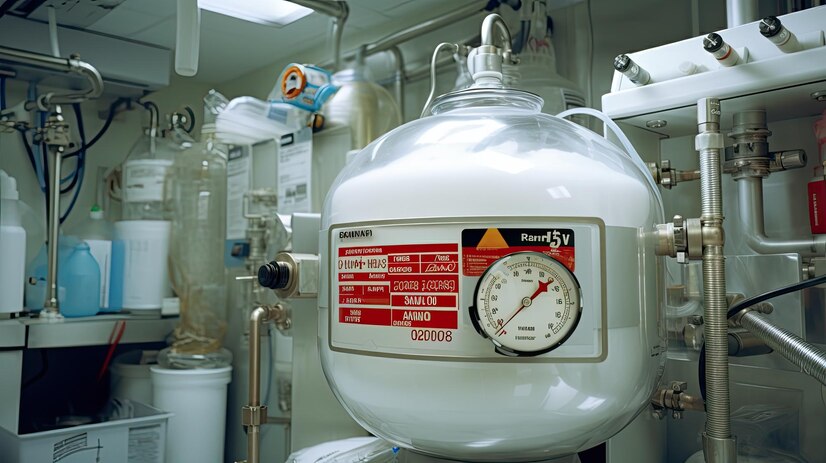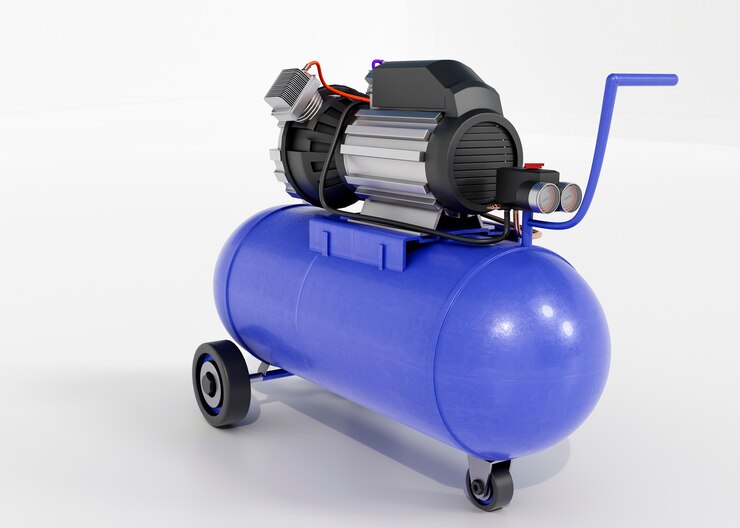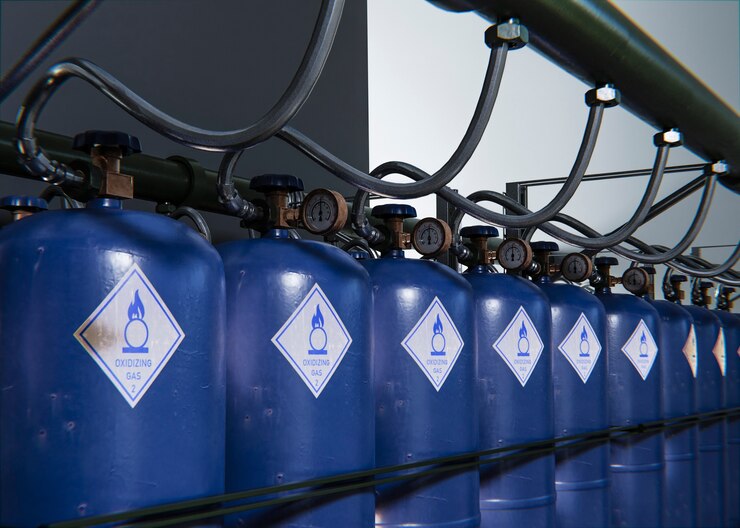What is a Synthetic Gas Compressor and Why is it Choose?
Exploring the Masters of Clean Energy and Industry with Synthetic Gas Compressors:
That is why today more and more compressors are used in the industrial process and production of synthetic gas, making them indispensable tools for modern production. For using these compressors from backing up a gas-fired plant to powering synthetic fuels, these machines deserve our ringing appreciation for consistently performing at very high levels of efficiency as we focus on sustainability in various sectors. But what does a synthetic gas compressor mean and why it is crucial?
What Does the Synthetic Gas Compressor Mean?
In its most simple form, a synthetic gas compressor or a syngas compressor is a piece of equipment used for compressing gases that are synthesized. These gases are also known as syngas, and can be processed through coal gasification, biomass gasification, as well as through the Fischer Tropsch process. Syngas mainly comprise hydrogen (H₂), carbon monoxide (CO), carbon dioxide (CO₂), and methane (CH₄).
Synthetic gas is a compressed mixture whose composition depends on the type of gas that is filled in the cylinder this is the basic idea of operation of a synthetic gas compressor.
How Does a Synthetic Gas Compressor Work?
This kind of compressor is used in the synthesis of synthetic gas and involves the compression of the g; this process decreases its volume but increases the pressure. This process is important in most applications where the synthetic gas needs to be transported, stored, or else subjected to additional processing. There are several types of compressors such as turbo compressors, centrifugal compressors, and reciprocating compressors and each has its application and appropriate pressure.
Applications of Synthetic Gas Compressors
These gas compressors can be found in different deployments within the energy context as some of the most crucial parts. Due to their behavior towards different gases in various processes, they are so vital in many industrial as well as energy-acting events. Here’s an in-depth look at some of the key applications of synthetic gas compressors:
Gas Production and Gathering
In synthetic gas production, compressors are used to elevate the pressure of gases that are produced from several sources. This includes:
• Syngas Production: In the production of compressors as in Coal gasification or biomass gasification, the pressure of the syngas produced is elevated to enable its transportation and utilization in other processes.
• Gathering Systems: Compressor stations involve the collection of synthetic gas from several production wells to a single pipeline. The above integration helps in increasing the transportation rates and also guarantees the provision of gas to necessary process plants.
Storage Facilities
Compressors play a significant role in the management of synthetic gas within storage facilities:
• Underground Storage: There may be such problems as how to store the excess synthetic gas produced during low-demand periods through compression and underground storage, and so on. When there is a high demand for any given gas, the stored gas is depressurized finally to make it accessible to people. This practice is critical in ensuring that there is adequate supply of the commodity and at the same time meeting the surprises in supply and demand.
LNG – Liquefied Natural Gas – Production
• Compression for Liquefaction: Due to the properties of natural gas, before it can be cooled and liquefied it must be put under high pressure. This step is very essential for the process of liquefaction since it has implications on the volume of the compressed gas that is easier to store and transport.
Fueling Stations
• CNG and LNG Fueling Stations: In the case of cars and vehicles that utilize compressed natural gas (CNG) or liquefied natural gas (LNG), there is use compressors to increase the pressure of the natural gas to refueling pressure. This makes certain that automobiles get an efficient and simplistic method of fueling.

Synthetic Gas Compressors and its Effect on Industries and Energy
Given its versatility, coupled with the fact that it has become an essential tool in the current world economy and industries reliant on energy, the synthetic gas compressor is an important component in the current world economies and energy demands. The optimization of the various compressors that are utilized in the production, storage, transportation, and ultimate use of gas supports numerous processes that are crucial in the provision of energy in the most efficient manner.
- Enhanced Efficiency and Reliability:
These gas compressors are those, which are built with efficient working and reliability as the main parameters. Because of their mechanics, their tolerance to high-pressure gases as well and their ability to run for long periods without major breakdowns, they have become a vital pillar in most industries. Used in the production of synthetic fuels, management of gas storage, and fuelling of vehicles, these compressors ensure that gases are processed and moved in the right manner.
- Sustainability and Environmental Impact
While industries and energy sectors are shifting towards carbon-neutral operations synthetic gas compressors are also helping to mitigate their effects. As it helps to facilitate increased effectiveness in the utilization of gas and promote the production of cleaner fuels, these compressors serve a broad objective of lowering carbon emissions and enhancing the efficiency of energy use.
Technological Advancements
Power plant engineers need to recognize the key improvements and trends in synthetic gas compressor technology to understand the future improvements of such devices. Process enhancements which include enhanced compressor sealing systems, bearings, and controls are major milestones that have enhanced the efficiency and longevity of the compressors. Moreover, when it comes to the use of advanced materials as well as manufacturing processes, these kinds of compressors are becoming even more dependable and competent to address elevated levels of workloads.
Synthetic Gas Compressor Contribution in the Gasification Processes
Gasification is the process of converting solid or liquid fuels into gaseous form which is majorly the syngas. This is done by synthetic gas compressors which are used to compress the syngas to the right pressures that are expected in the next processes.
- Biomass Gasification
In biomass gasification, organic matter such as lumber, crop remains, or municipal waste are transformed into syngas. These syngas can be compressed and applied in the generation of power, chemicals manufacturing, or as a feedstock for manufacturing synthetic fuels.
- Coal Gasification
There is another process called coal gasification where synthetic gas pressurization is almost essential. Here, coal is converted to syngas through a series of reactions including heating, application of pressure and addition of oxygen. The compressed syngas can be utilized for power generation, in the production of chemicals or as a feedstock for the Fischer-Tropsch conversion.
Why Choose Synthetic Gas Compressors?
The benefits of using synthetic gas compressors are numerous, making them the preferred choice in various industries:
Efficiency: These compressors are utilized and specially made to ensure that each is compressed efficiently to save energy at the same time. This is especially so in industries where the cost of power is very high, especially in large-scale operations.
Reliability: Due to their mechanical constructiveness, these compressors are very reliable despite the environmental conditions faced. Under correct utilization, they could run for long periods of about several years with little or no need for repairs.
Versatility: When it comes to the types of gases that compressors can compress, they are designed to work with a variety of different gases, including but not limited to hydrogen, methane and carbon dioxide. This ability makes them useful in a wide range of applications and this is why they are used more frequently in such conditions.
4. Sustainability: In a global context where carbon emissions have to be minimized synthetic gas compressors promote sustainability by enabling clean energy generation and increased efficiency in industrial applications.
Conclusion:
Synthetic gas compressor is much more than just industrial machinery; it is key enablers of modern energy production and industrial processes. Our ability to compress and handle a wide range of gases makes them indispensable in industries like power generation, chemicals, steelmaking, and petrochemicals.
For those looking to invest in synthetic gas compressors or learn more about their applications, LEiYAO offers a wealth of information. With the right compressor, your business can achieve greater efficiency, reliability, and sustainability.



